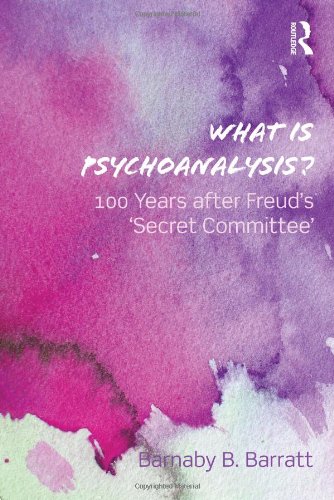

Most ebook files are in PDF format, so you can easily read them using various software such as Foxit Reader or directly on the Google Chrome browser.
Some ebook files are released by publishers in other formats such as .awz, .mobi, .epub, .fb2, etc. You may need to install specific software to read these formats on mobile/PC, such as Calibre.
Please read the tutorial at this link: https://ebookbell.com/faq
We offer FREE conversion to the popular formats you request; however, this may take some time. Therefore, right after payment, please email us, and we will try to provide the service as quickly as possible.
For some exceptional file formats or broken links (if any), please refrain from opening any disputes. Instead, email us first, and we will try to assist within a maximum of 6 hours.
EbookBell Team

5.0
38 reviewsIn a radically powerful interpretation of the human condition, this book redefines the discipline of psychoanalysis by examining its fundamental assumptions about the unconscious mind, the nature of personal history, our sexualities, and the significance of the "Oedipus Complex". With striking originality, Barratt explains the psychoanalytic way of exploring our inner realities, and criticizes many of the schools of "psychoanalytic psychotherapy" that emerged and prospered during the 20th century.
In 1912, Sigmund Freud formed a "Secret Committee", charged with the task of protecting and advancing his discoveries. In this book, Barratt argues both that this was a major mistake, making the discipline more like a religious organization than a science, and that this continues to infuse psychoanalytic institutes today. What is Psychoanalysis? takes each of the four "fundamental concepts" that Freud himself said were the cornerstones of his science of healing, and offers a fresh and detailed re-examination of their contemporary importance.
Barratt's analysis demonstrates how the profound work, as well as the playfulness, of psychoanalysis, provides us with a critique of the ideologies that support oppression and exploitation on the social level. It will be of interest to advanced students of clinical psychology or philosophy, as well as psychoanalysts and psychotherapists.